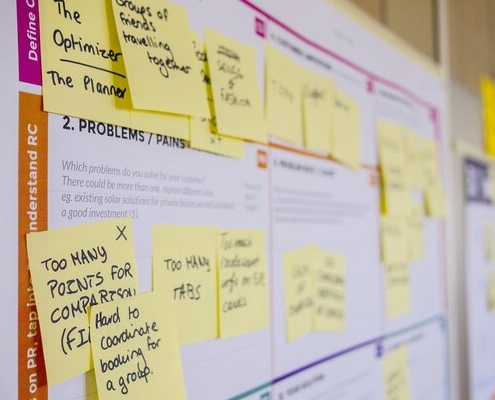Must-have Hard Skills for Project Managers
A solid team can contribute to the broad range of skills needed to complete projects successfully. However, project managers must possess several skills to ensure project success:
Construct risk response plans. Although team members can identify risks, the project manager handles building and managing sound risk responses. Because the PM is the project liaison to the sponsor and senior leaders, the PM must be able to discuss, adjust, and deploy risk responses effectively.
Recognize schedule feasibility. Lots of schedules that are built don’t reflect reality. For example, feasible schedules include realistic expectations for team members’ weekly allocation the project. Schedules must also include realistic estimates of the effort to complete tasks. And fast-tracking or crashing built in the schedule must be sensible and doable. The PM must be able to spot these pitfalls and correct them.
Domain expertise. The PM must know enough about the project’s technical domain to work with technical domain experts. In other words, the PM shouldn’t be fooled by experts trying to escape probing questions. For example, a project manager experienced in IT won’t have an issue talking to experts deploying new IT tools. That same PM, assigned to a construction or mining projects could easily be deceived by “the experts.” Project managers can successfully manage projects without specific domain knowledge. However, that situation introduces risk and increases project personnel costs because domain experts need to partner with the PM.
Knowledge of both the technology and business environment. A project’s business outcome often requires different knowledge than what you need to know to build the deliverables that facilitate that outcome. Consider a hospital project to provide advanced medical diagnostic services. Understanding the financial and marketing objectives of the project is much different than understanding the technology used in the sophisticated medical diagnostic equipment that interprets medical test results. The project manager, who works with the team and customers, needs to understand both: what’s needed to produce deliverable as well as the viability of the business outcomes.
Vendor and contract management. In projects involving significant contracted skills or components, the project manager must be able to manage vendors and their contracts to ensure that deliverables are created efficiently and interactions between vendors are in the project’s best interest, not the vendor’s. For example, customized technical components built for a project require the project manager to validate contracts as well as integrations between those components and other parts of the project solution.
Strategic thinking. In projects that significantly alter business direction, the project manager must be able to think strategically to ensure the approach supports specific project goals and fits into the sponsoring business’s strategic direction.
What other hard skills do you think project managers absolutely must possess?
For more about project management, check out my Project Management Foundations course.




